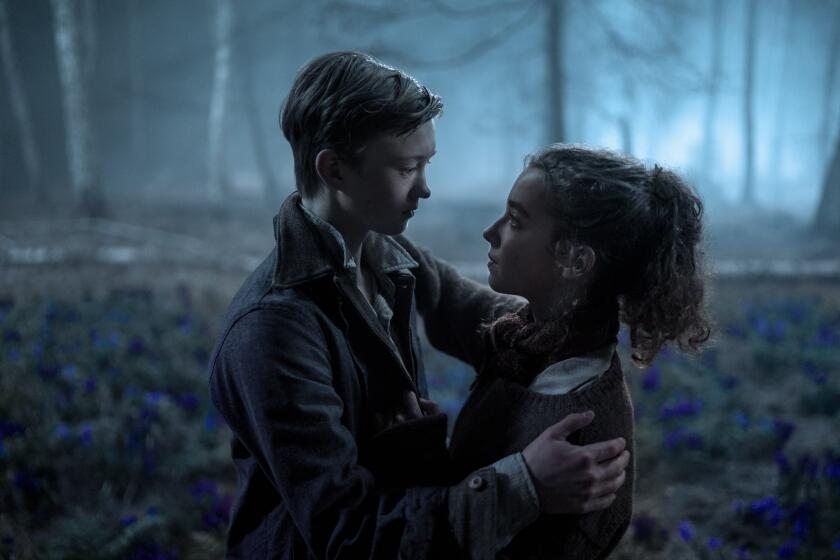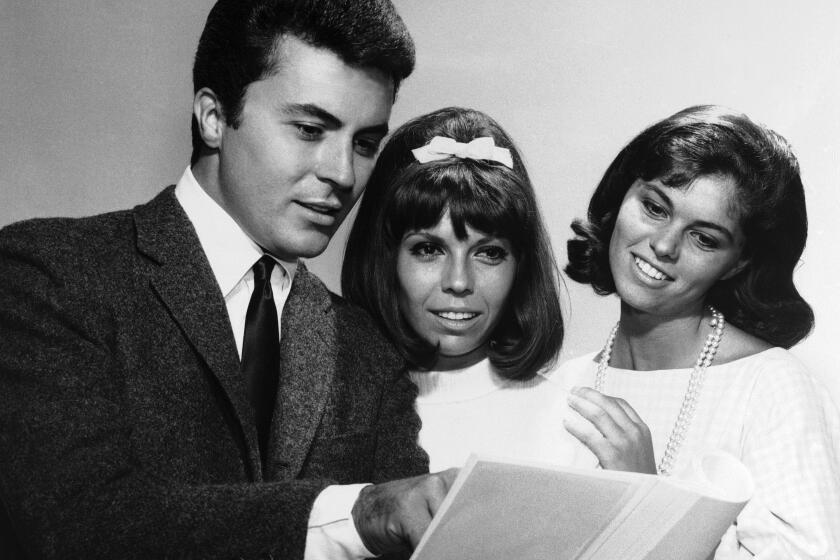Director Hal Ashby Dies; Made ‘Harold and Maude,’ ‘Shampoo’
Hal Ashby, director of such idiosyncratic films as “Harold and Maude,” “Shampoo,” “Coming Home” and “Being There,” died Tuesday at his Malibu home after a battle with liver cancer. He was 59.
Ashby had been hospitalized several times during the past five months, business manager Larry Reynolds said.
Known as a man of fiercely independent nature, Ashby first gained stature in Hollywood as an editor of films that included “The Cincinnati Kid” (1965), “The Russians Are Coming, The Russians Are Coming” (1966) and “The Thomas Crown Affair” (1968).
Oscar Winner
He won an Oscar for his editing of the 1967 Norman Jewison film, “In the Heat of the Night.”
His directing career began in 1970 when Jewison gave him a chance to direct Beau Bridges and Pearl Bailey in “The Landlord.” The following year, Ashby made “Harold and Maude,” a lighthearted treatment of death and the bizarre romance between a boy and an aging woman. It was off-beat enough to become a cult film.
Then came the Jack Nicholson film, “The Last Detail” (1973), and “Shampoo” (1975), which starred Warren Beatty as a philandering hairdresser. Ashby also directed “Bound for Glory,” the 1976 film about folksinger Woody Guthrie and the Depression era.
Nominated for Award
He was nominated for an Academy Award for the 1978 anti-war movie, “Coming Home,” which starred Jane Fonda as a Marine officer’s wife in love with a paraplegic Vietnam veteran, played by Jon Voight.
One of his most successful directing efforts was “Being There,” the 1978 film in which Peter Sellers portrayed a sheltered gardener, whose childlike utterances were interpreted by others as words of deep wisdom.
But after several years of turning out successful films, the bearded, shaggy-haired Ashby seemed to have trouble reaching the movie-going public. He directed two 1979 films, “Second Hand Hearts” and “Lookin’ to Get Out,” but neither was a hit. Their handling by Lorimar Films led to a bitter falling out with the company.
Ashby found himself being asked if he was burned out.
In a 1982 interview, he said he had heard the rumors that he was through and that he was dying but declared, “I can’t recall the last thing I heard about myself that was true.”
Finished Films
He pointed out that he had finished four films in the past four years.
In 1983, he put together footage from three 1981 Rolling Stones concerts to make “Let’s Spend the Night Together.” Then he directed the “Slugger’s Wife” (1985) and “Eight Million Ways to Die” (1986).
Reynolds said Ashby was preparing to direct a film of Truman Capote’s “Hand Carved Coffins” when he died.
Ashby called himself an optimist, saying: “I basically have a very positive philosophy of life, because I don’t feel I have anything to lose. Most things are going to turn out OK.”
Actor Bud Cort, who starred with Ruth Gordon in “Harold and Maude,” said Tuesday of Ashby: “Hal had a genius for finding the humor and beauty in the most unlikely places. He created an atmosphere of trust and affection that was unparalleled for me. . . .”
Ashby was born in Ogden, Utah. He became a drifter, hitchhiking from state to state to do odd jobs and finally coming to Hollywood, where he lived in a $7-a-week room on Bunker Hill while he sold magazines and encyclopedias.
He said he did not last long at any of those jobs because “you were always doing a con; telling a lie.”
“I don’t like to tell lies,” he said.
He then got a job running a multilith press at Republic Studios, eventually working his way into the editing rooms where he managed to get apprenticed to Robert Swink, who did editing for director William Wyler. Later, Ashby became Jewison’s editor.
Ashby leaves a sister, Ardith Thomson of Ogden, and a brother, Jack Ashby of Fresno. He was divorced.
Services will be private.
His family requests that in lieu of flowers, contributions be made to the Hal Ashby Film Scholarship Fund in care of the American Film Institute, 2021 N. Western Ave., Los Angeles, 90027.
More to Read
Only good movies
Get the Indie Focus newsletter, Mark Olsen's weekly guide to the world of cinema.
You may occasionally receive promotional content from the Los Angeles Times.










